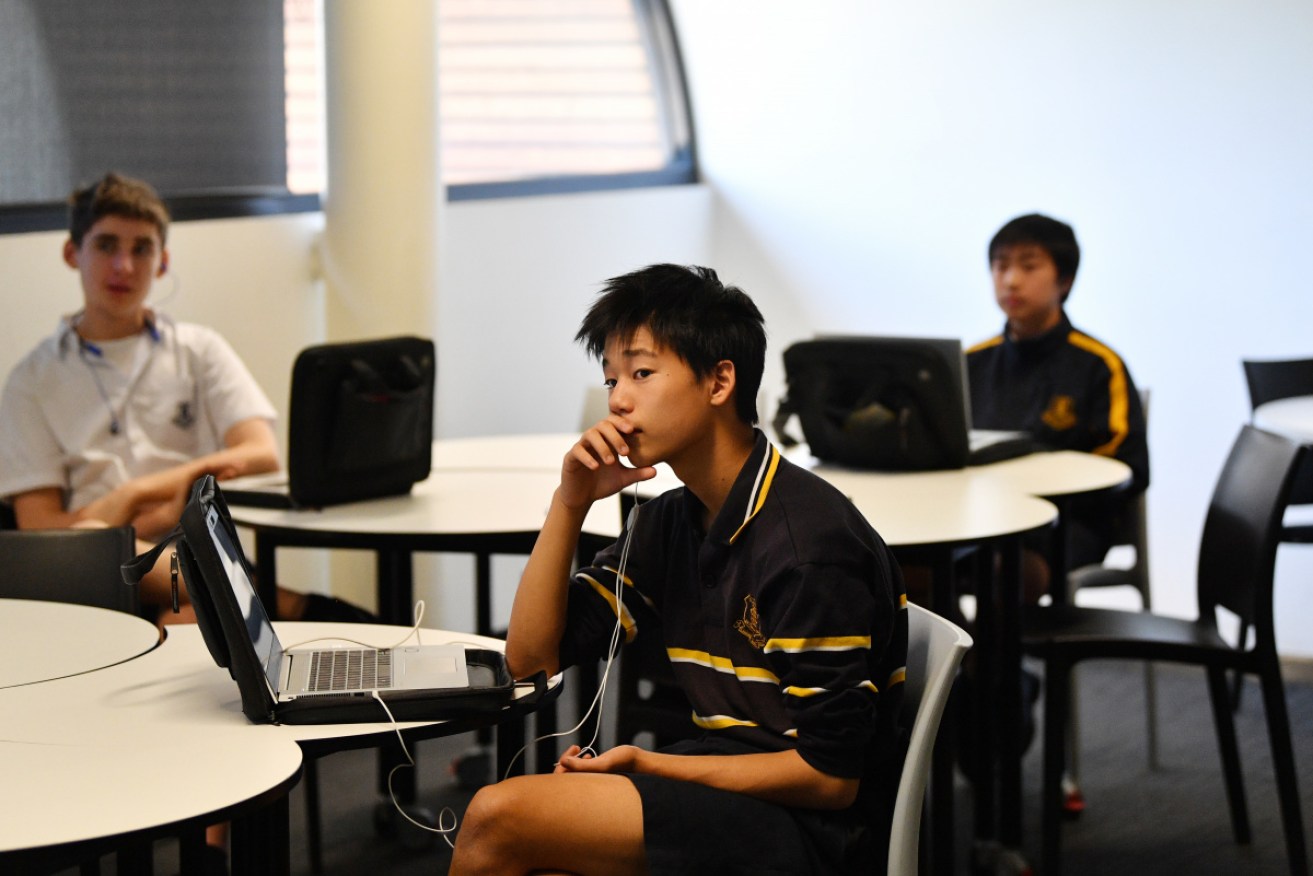Teachers say students lack empathy, focus in digital age

Students prepare for a virtual online learning system at Adelaide's Glenunga High School in Adelaide on April 3. Photo: AAP
Teachers say children are less focused, empathetic and eager to learn than they were five years ago with many blaming technology as a major distraction in the classroom, a survey has found.
Nearly 2000 primary to Year 12 teachers were quizzed on what – if any – changes they’d noticed among their students in the past few years.
Most teachers said they had observed more children with psychological, social and behavioural issues than ever before, while 78 per cent believe kids today also struggle with empathy.
They’re also more distracted and 60 per cent less active than their previous cohorts, teachers reported.
Glad to join @ChildsRos on lunchtime @abcnews today about @GonskiInstitute's new Growing Up Digital Australia study findings. Details here: https://t.co/20b3CJWGaN pic.twitter.com/OUZQVKMZWF
— Pasi Sahlberg (@pasi_sahlberg) April 16, 2020
But two-thirds also think technology has made learning easier for students with disabilities.
And 43 per cent of teachers and principals believe it has improved class-time activities.
The results come as kids across Australia take part in the “biggest education experiment in history,” with thousands of students and beleaguered parents relying on digital media and technology due to the coronavirus outbreak.
Published in the Growing Up Digital Australia report by the Gonski Institute of Education, at the University of NSW, the survey is the first tranche of research into the impact increased use of digital technology has had on children’s health and wellbeing.
Co-author Pasi Sahlberg, professor of Educational Policy and Gonski’s deputy director, said banning devices in schools or homes won’t help students navigate the digital minefield.
“As adults, we have much to learn about their habits, and the benefits and pitfalls of screen-based technologies for them. Growing Up Digital Australia sets out to do just that,” Professor Sahlberg said.
The data will also be crucial to planning education post-COVID-19, the UNSW said.
It already found vast inequalities facing children from lower socio-economic backgrounds who may be priced out of learning – both remotely and in classrooms – as costly technology becomes a more popular tool in schools and homes.
Gonski has partnered with Harvard Medical School, the University of Alberta and Alberta Teacher’s Association in the research project, which is set to be the world’s largest study of technology and its impact on student’s learning and health.
-AAP








